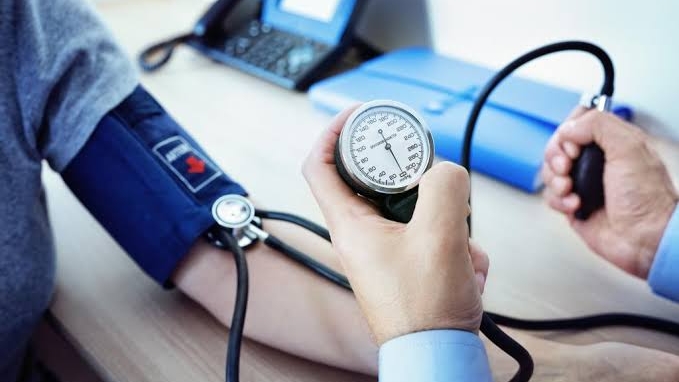World Hypertension Day: Doctors say half of people suffering from hypertension unaware of their condition

Srinagar, May 17: Medical experts warn that around half of the people suffering from hypertension remain unaware of their condition, leading to severe health consequences. According to the Kashmir News Observer (KNO), doctors emphasize the urgent need for hypertension education programs, especially targeting younger populations, including school-going children.
Dr. Muhammad Salim Khan, Head of the Department of Community Medicine at GMC Srinagar, highlighted that hypertension is a significant global concern among non-communicable diseases. He noted that every third or fourth adult in the region has hypertension, yet nearly half are unaware of their condition. Dr. Khan referred to hypertension as a “silent killer” because it often shows no symptoms, leading many to attribute vague signs to other illnesses.
Dr. Khan further revealed that four out of five hypertensive patients struggle to control their blood pressure, resulting in severe consequences such as heart attacks, strokes, and kidney failure. The prevalence of hypertension among school-going children is particularly alarming, attributed to drastic lifestyle changes, sedentary habits, and unhealthy diets high in salt, sugar, and fat.
Kashmiris consume significantly more salt than the recommended daily maximum of five grams, with intake ranging from 10-15 grams daily. This excessive salt consumption is a major contributor to the rising rates of hypertension, especially among younger populations who are increasingly prone to developing related diseases earlier in life.
Dr. Khan stressed the need for comprehensive hypertension education programs in schools, colleges, and workplaces. These programs should focus on promoting lifestyle and dietary changes to reduce the burden of hypertension. Key recommendations include regular physical activity, reduced intake of salt, sugar, and fats, and avoiding smoking and substance abuse.
Dr. Mir Mushtaq, spokesperson for the Directorate of Health Services Kashmir (DHSK), supported these recommendations, emphasizing the importance of an active lifestyle, maintaining a healthy weight, and regular exercise. He also stressed the necessity of monitoring blood pressure regularly to manage hypertension effectively.
Both Dr. Khan and Dr. Mushtaq underscored the importance of medical follow-ups and strict adherence to prescribed medications to prevent hypertension-related complications. They called for collaborative efforts to implement educational and behavioral intervention programs aimed at controlling and preventing hypertension across all age groups.
In conclusion, addressing hypertension requires a multifaceted approach involving education, lifestyle modifications, and regular medical care. With targeted efforts, especially among the youth, the severe impacts of hypertension can be mitigated, improving overall public health outcomes in the region.





